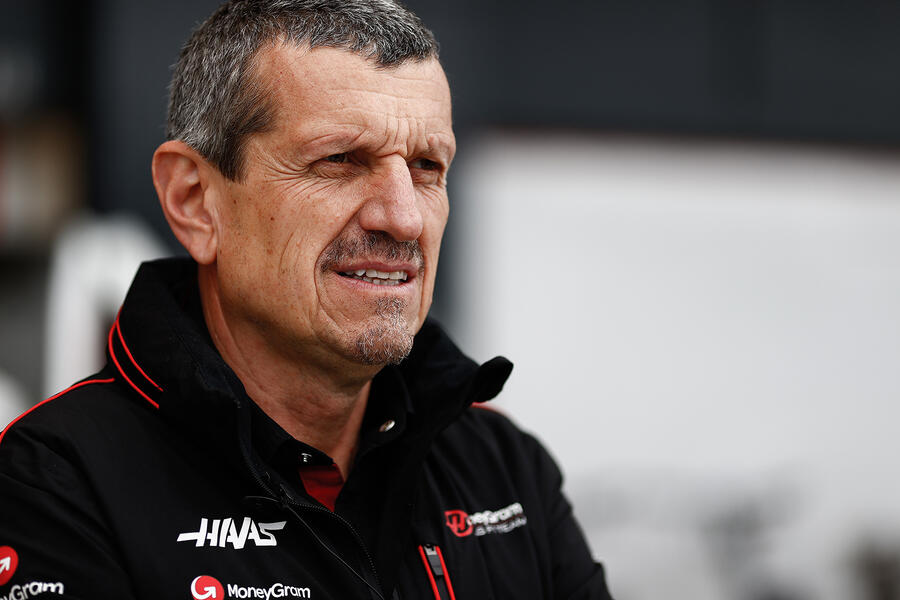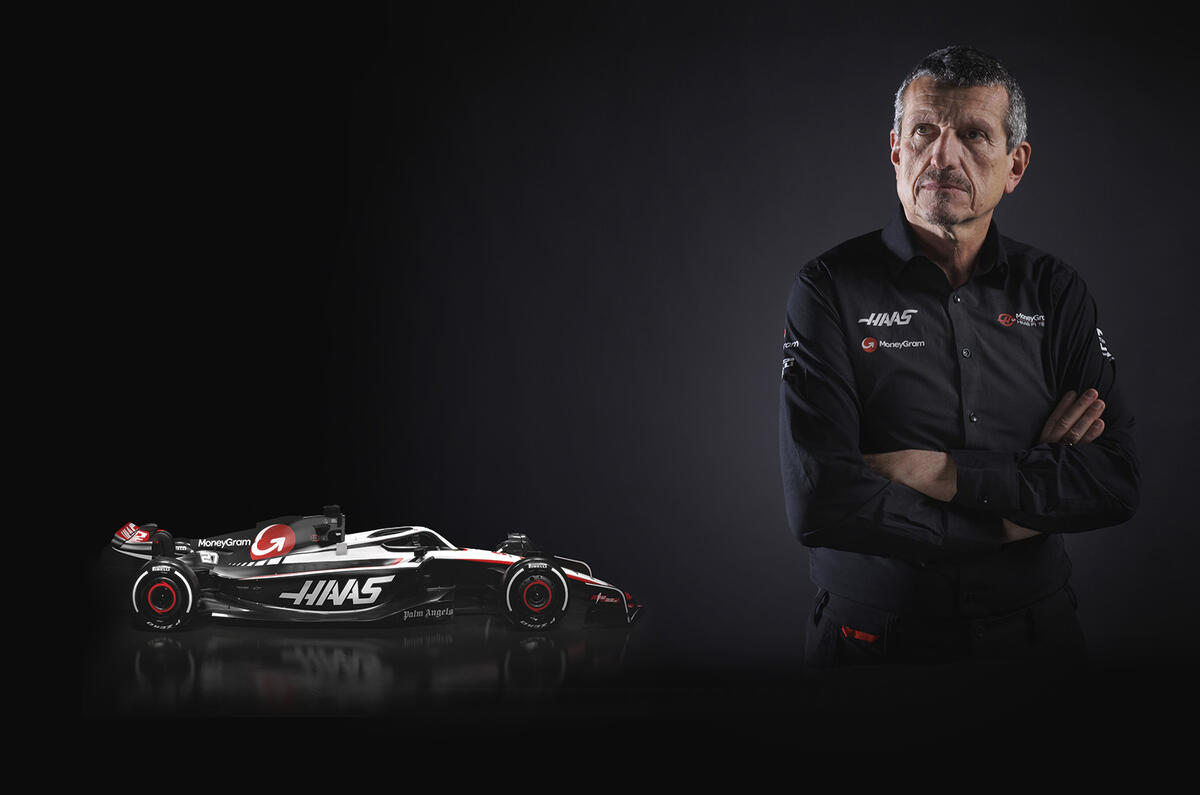An otherwise quiet off-season for Formula 1 was shaken up by the unexpected departure of Haas team principal Guenther Steiner, hitherto the third-longest-serving boss in the sport behind Red Bull’s Christian Horner and Mercedes-AMG’s Toto Wolff.
Despite the revolving-door policy adopted up and down the paddock recently, the news came as a shock, because Steiner wasn’t just a hired executive – he was the heart and soul of his team.
The former Jaguar and Red Bull man was in the US and running a growing composite business when he started the team from a blank sheet of paper.
He came up with the concept of having a small full-time staff while sourcing as much as possible from suppliers Ferrari and Dallara, and convinced machine tools magnate Gene Haas to fund the project.
The team got off to a sensational start in 2016, when Romain Grosjean came sixth in its debut race, and two years later it finished a remarkable fifth in the constructors’ championship.
After that, though, life became tougher as other teams stepped up their games, and then, in 2020, the challenges of the pandemic hit Haas particularly hard.
In 2023, the team slipped to 10th and last in the table, despite its car showing good one-lap pace.
Just as Steiner’s latest three-year contract was expiring at the end of December, he was told by Gene Haas that he wouldn’t be retained.
Shock exit
“He called me up,” Steiner tells Autocar. “It was out of the blue. I was like: ‘Okay, what do you want to tell me?’
“He said: ‘I don’t want to extend the contract.’ I said: ‘In the end, it’s your decision. It’s your team and the contract is up. What can I do? Do I think it’s right or not? Whatever I say, you’ll disagree with it. So leave it at that.’
“It was a very short call; it wasn’t a big discussion or anything. It was also very strange. You work with somebody for 10 years and you get a call [like that]… It’s weird. I was okay. I just move on. It’s fine. Anyway, I couldn’t believe any more in what was happening there.”
Directional change
The pair had a fundamental disagreement on the way forward. Steiner could see all too clearly how the team’s immediate rivals were ramping up their factory infrastructure and duly sought more investment in order to keep pace.
Haas, meanwhile, believed that the team could achieve more with the resources that it already had.
“Something needed to change,” says Steiner. “I’m not saying that Haas did it wrong. All the other ones did it right. F1 changed from when Haas started to where it went in the past five years. It’s a completely different ball game. They’re all strong teams.
“You just need to open your eyes, if you understand F1, and look at what the other ones do – and Haas isn’t doing it. At some stage, you can’t get anywhere with [Haas’s] approach. It’s just not time-representative any more.”

Steiner believes that the team’s current UK base – the former Manor/Marussia facility in Banbury – is no longer fit for purpose.
It’s a basic race shop; all the design and manufacturing is conducted far away in Italy. As other teams ruthlessly pursued efficiencies in those areas in order to stay below the budget cap (introduced in 2021), Haas was left behind.
“Once everybody understood this budget cap, everybody started to invest in the infrastructure to get the best out of the operational budget,” says Steiner.
“At the moment, if you buy stuff [from external suppliers], it isn’t the best way to do it. You need to invest, not to just spend money but invest money to get money, and Gene didn’t want to do that. And again, if he doesn’t want to do it, he’s perfectly right not to do it. I’m not trying to teach him how to do things, because he owns the team.”
Haas was committed to paying the parts prices set by suppliers Dallara and Ferrari, with no way of scaling back those costs.
“Exactly: you’re stuck,” says Steiner. “And these people need to make money, otherwise why would they do it? But it’s also having a vision, how to get this done. And I’m not saying buying the Ferrari suspension is wrong. But at least there needs to be a trend to do things better.
“Also, to attract more sponsors, you need to give them more, because everybody is gearing up what they give to sponsors.
“You need to have a story which is aligned with the other nine teams, because I wouldn’t think that the other nine teams are all stupid. If you’re outnumbered nine to one, normally the nine are right.”
The Haas story
So how does Steiner view the decade that has passed since the team gained its entry? “It was a good 10 years,” he concedes.
“You have good days and bad days, but in general I think if you can do something like this in your life, it’s pretty cool. To set up an F1 team being your idea and then getting it done… Even if you’re not ending up owning it, doing the impossible, having the idea and getting along and creating it is cool. [Haas is] still the youngest team, and it just started with a piece of paper. So no regrets on that.”
No one can take away the fact that the team earned a sixth place on its debut. “That’s the obvious one,” says Steiner when asked to recall the highlights.
“All the people said this couldn’t happen with the way it was structured – and it happened. We were at the first test at the right time in the right place. We came to the first race at the right time at the right place. And we went out there without an issue and scored points.
“That proves that you can do something, and then from there onwards, obviously you get the daily issues. I would say it was pretty good sailing, and then Covid hit and everything was getting more difficult.”
What comes next?
Another F1 team principal job looks unlikely, and even if he were offered one, he would be a hired hand and never have the autonomy that he had in his Haas role.
Inevitably, Steiner is already in demand by the media, having sampled a TV punditry role on a visit to the Nascar race in Austin, Texas, last year.
“It was good that I tried that. At least I know what it is now if people talk with me about it,” he says.
“I’m not in a hurry to make a decision in the next month or two. I’ll see what comes along, how everything pans out. I wouldn’t say I can pick what I want to do, but I think I will have a few options. And in the end, I will do the ones which I like to do.”
Steiner on becoming a celebrity
Since Drive to Survive first aired on Netflix in March 2019, Steiner has been one of the stars of the series, his no-nonsense approach and colourful language standing out in a world that many consider bland.

He claims never to have watched an episode, but he can’t ignore what it has done for his public profile.
“It’s not that I enjoy it,” he says of his new-found fame. “It came and I can’t undo it. To undo it, I would need to completely tone it down and be an asshole to people!
“It’s difficult to enjoy it, but it’s not like I got up in the morning to be a celebrity. I didn’t do that. It happened on the side. I’m not going in front of the mirror to make myself look good because now people want to talk with me.
“You just need to be aware that it could be anywhere that people could recognise you. In the end, I normally don’t behave badly anyway, so I don’t care if somebody recognises me!
“But especially in the beginning [of your fame], sometimes you forget that people recognise you and then they say something and you think: ‘Why does he know who I am?’ And then you realise. You get pretty used to it after a while.”
Adam Cooper




Add your comment